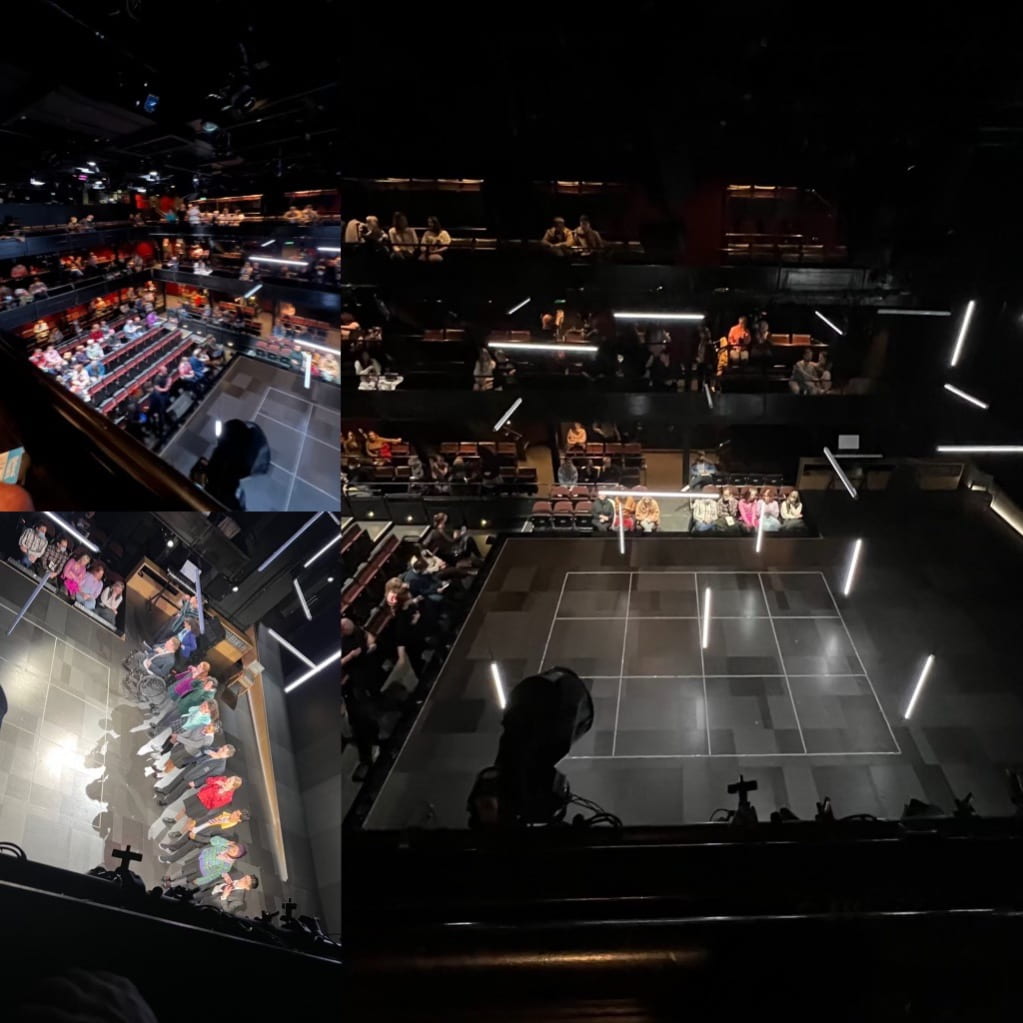Organized Chaos – Inside the Mind of ‘Our Generation’
Justin T. Andries
If you want to see what it is like growing up in the age of social media, fast fashion, struggling with body insecurities because everyone else around you looks perfect, and cramming for exams until the bags under your eyes start getting tired of you – all before the strike of a pandemic that killed millions of people around the world, go see Our Generation. That was a mouthful, wasn’t it? So was this play. If I could describe Our Generation in one word, it would be chaotic, but in a good way. After all, weaving in and out of the experiences and thought processes of twelve teenagers over the course of five years could not have been an easy job to accomplish.
I appreciated how each character was fully fleshed out, and how they all had their own individual story that still tied into the main theme of the play. We had a basketball player who wanted to make it big in the states, a girl obsessed with her looks and being the next big social media influencer, a Welsh girl whose dad is in jail and suffers from an abusive relationship, and so many more interesting characters. Blythe found a way to respect and explore each character as individuals and succeeded at relating to all types of youth from all walks of life. I loved how diverse the cast was and how the expression of different cultures was carefully executed. Watching the stories of these characters across a chain of comedic yet heart-warming, and sometimes tragic vignettes made me feel close to each and every one of them like they were one of my friends.
What I truly enjoyed about this play was the honest depiction of what life was like during the pandemic for these kids, and how closely it resembled the life of me and my friends. I feel like it could be so hard talking to someone outside of my generation about my experience during the pandemic because they would think I’m being dramatic, but now I see that I wasn’t. I don’t think I could have put into better words how I felt for majority of the pandemic, how it felt like my dreams for the future were quickly slipping away because the world as we knew it felt so unfamiliar and closed off.
I think the message of this play is that society, even members belonging to this generation portrayed in the play, listen to these broad assumptions about “our generation” and believe it, when in reality, our generation is comprised of unique individuals, with different backgrounds, experiences, and levels of opportunity. It depicts that becoming the adult you want to be, whether that’s a basketball player, or a lawyer, or a wrestler, is a lot of work, and sometimes that hard work isn’t recognized by those we love, or even ourselves. I use this play as a reminder to not be so hard on myself, and to take time to relax and unwind because that’s just as important as succeeding in life. Hell, I got through two semesters of college during the height of a pandemic, and I did amazing, we all did. I also use this play to remind myself that we all go through similar struggles and that we have more in common with people than we think. All in all, I think this play was the most authentic and unbiased platform anyone has ever given our generation, and I applaud Blythe for that. I can only imagine the connection she’s made with these individuals and the insight it gave her into a better understanding of what life is actually like for someone my age.






